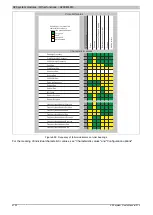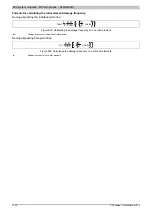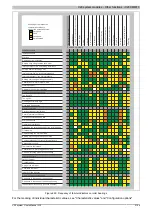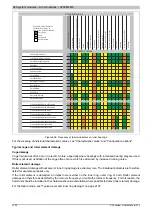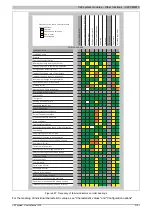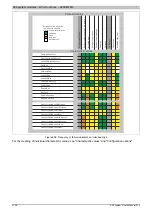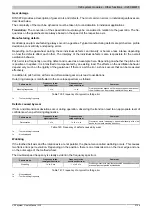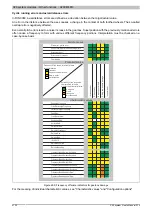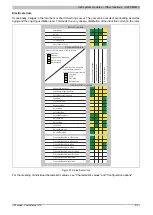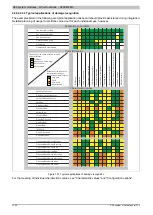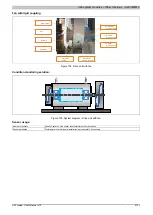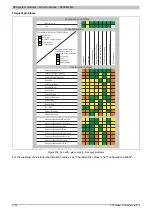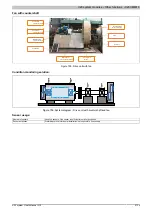
X20 system modules • Other functions • X20CM4810
2120
X20 system User's Manual 3.10
Slide bearing damage
In a structure-borne sound measurement, the typical damage frequencies for a slide bearing do not manifest
themselves until a very late stage. For this reason, this method is less suitable for early detection.
Roller bearing damage
Many types of bearing damage are caused by imprecisions in the bearing surface such as material damage or
micro-cracks. These pits are rolled over by the roller elements and cause impacts on the roller bearing and its
attachment parts.
Entering
the load area
Leaving the
load area
Noise area
Shaft
Housing
Figure 688: Roll-over processes in the bearing
The mechanism is very similar to the striking of a bell. The clapper strikes the body of the bell, and the bell starts
vibrating at its natural frequency.
In the case of the bearing, each time the roller moves over the damaged area it is like the striking of the clapper,
and the roller parts and attachment parts start to vibrate.
These very small oscillations can be measured as a modulation or superposition of the excitation frequency on
the surface of the bearing.
Appropriate analysis methods such as formation of the envelope can separate the superposition to make the roll-
over frequencies of the bearing clearly discernible.

















